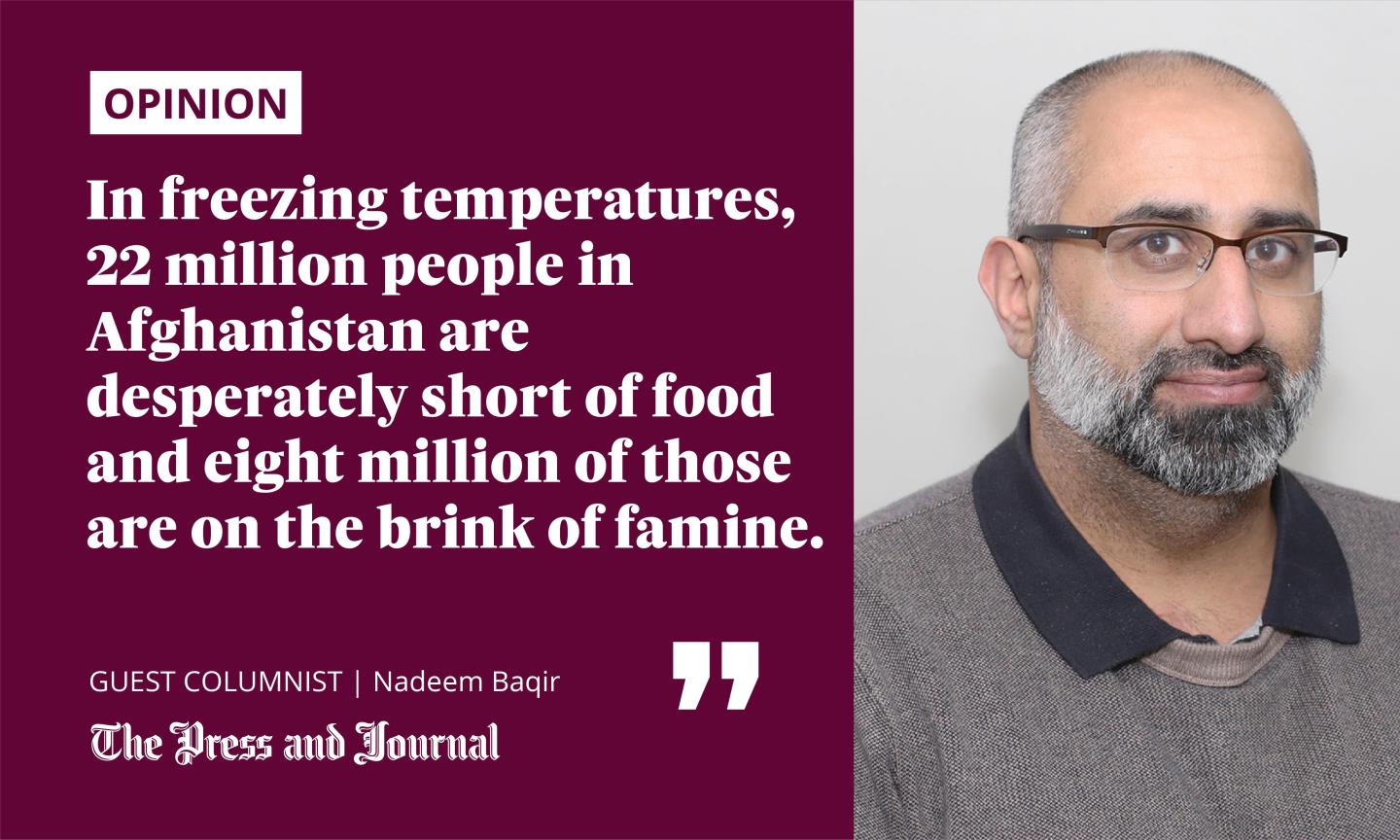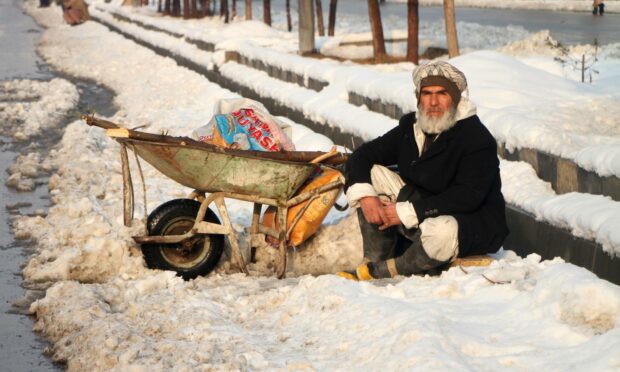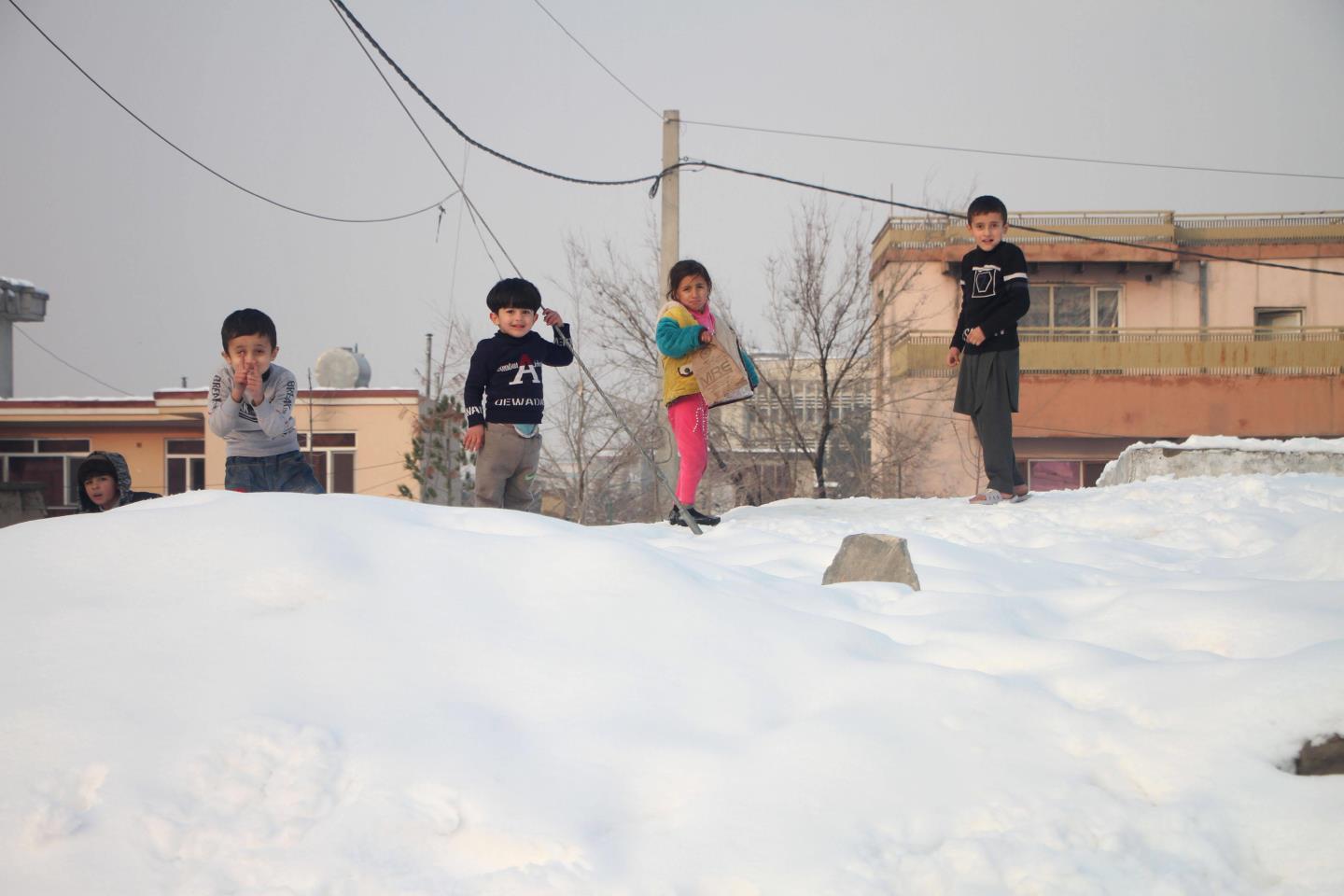This has again been a most unusual, even precarious festive break for so many of us. Normal service has been suspended, and perhaps it will never be the same again?
While it has been wonderful to spend time with family and friends we may not have seen for a year or more, so many of us have been doing so as we worry whether we may catch or pass on the latest variant of this persistent and pervasive coronavirus.

As we begin to look forward to the year ahead – the challenges and, we hope, some opportunity – it is understandable that energy is focused on those nearest and dearest, their safety and wellbeing, as we edge our way into 2022.
Sadly, as the Scottish spokesperson for the Disasters Emergency Committee (DEC), my focus and that of the huge humanitarian coalition I represent here in Scotland is firmly on Afghanistan, where millions are struggling to survive the rest of the harsh winter, clinging by a thread to life with little or no hope for the future.
22 million people are desperately short of food
In freezing temperatures, 22 million people are desperately short of food and eight million of those are on the brink of famine. Probably most distressing of all, children are already dying through malnutrition. A million people under the age of five are at risk of dying over these three coldest winter months ahead.
Millions have been forced from their homes and are trying to find shelter and warmth as temperatures plummet to -10C or lower
This fractured country has been devastated by years of civil war and regime changes. It is also currently enduring its worst drought in nearly 30 years and, of course, the spread of Covid. Less than 10% of the population have been vaccinated and health services are hopelessly ill-equipped to treat those most badly affected.
For all these reasons, the DEC launched one of its rare but vital appeals for funds just before Christmas. I’m proud to report that, with the generous support from the public in Scotland and across the UK, we have raised an incredible £25 million pounds which is already being used by our member charities in Afghanistan to save lives.
Thirteen of our 15 UK member charities have been working hard in Afghanistan for several weeks to make sure that money that is reaching those most in need – millions of children and babies who are badly malnourished and could starve in the coming days and weeks; millions of others who have been forced from their homes and are trying to find shelter and warmth as temperatures plummet to -10C or lower.
Showing global solidarity and citizenship
With your continued support, we will be able to deliver even more emergency food supplies and special supplements for badly malnourished babies while also strengthening hospitals and supported shattered and mostly unpaid health workers. The money will also be spent on basic life support items, such as blankets and clean drinking water.
If you are ready to donate, just £10 could provide treatment to a child suffering from malnutrition for three weeks, and £100 could pay for emergency food supplies for three months to give them a fighting chance of making it through the winter.
Your support is saving lives – thank you!
£26 million raised so far
DEC member charities are reaching thousands more families with nutrition, health care, food aid, cash, blankets, heaters and clothes to help people keep warm. Thanks to you. https://t.co/RehYFvRaZx pic.twitter.com/N2vU119HCz— DEC (@decappeal) December 29, 2021
The DEC partnership model for appeals – bringing major UK humanitarian charities together with the main broadcasters, BBC, Sky, Channel 4, Channel 5 and Sky – has, over nearly 60 years, created a unique “national moment” where people across the country come together to show global solidarity, their global citizenship.
With this crisis escalating so soon after world leaders gathered for the COP26 climate summit in Glasgow and, of course, during the ongoing pandemic, it seems many more people sense our interdependence in tackling these defining issues of our generation and for future generations.
274 million people in need of urgent humanitarian support
The terrible crisis unfolding in Afghanistan is only the most recent and extreme example of how conflict, climate change and coronavirus – the deadly “three Cs” – are putting a record number of people around the world in greater danger than ever before.
Only last month, OCHA (the main United Nations body that coordinates humanitarian relief) forecast that 274 million people are in need of urgent humanitarian support in 2022. That’s another rise of more than 15% on a previous record last year.
We hope you that, if you can, you will demonstrate your global solidarity by donating now to help starving families in Afghanistan make it through the winter.
You can donate via the DEC Afghanistan Crisis Appeal website, or by calling 0370 60 60 610.
Nadeem Baqir is Scotland community fundraising manager for Islamic Relief Scotland and a DEC Scotland spokesperson

